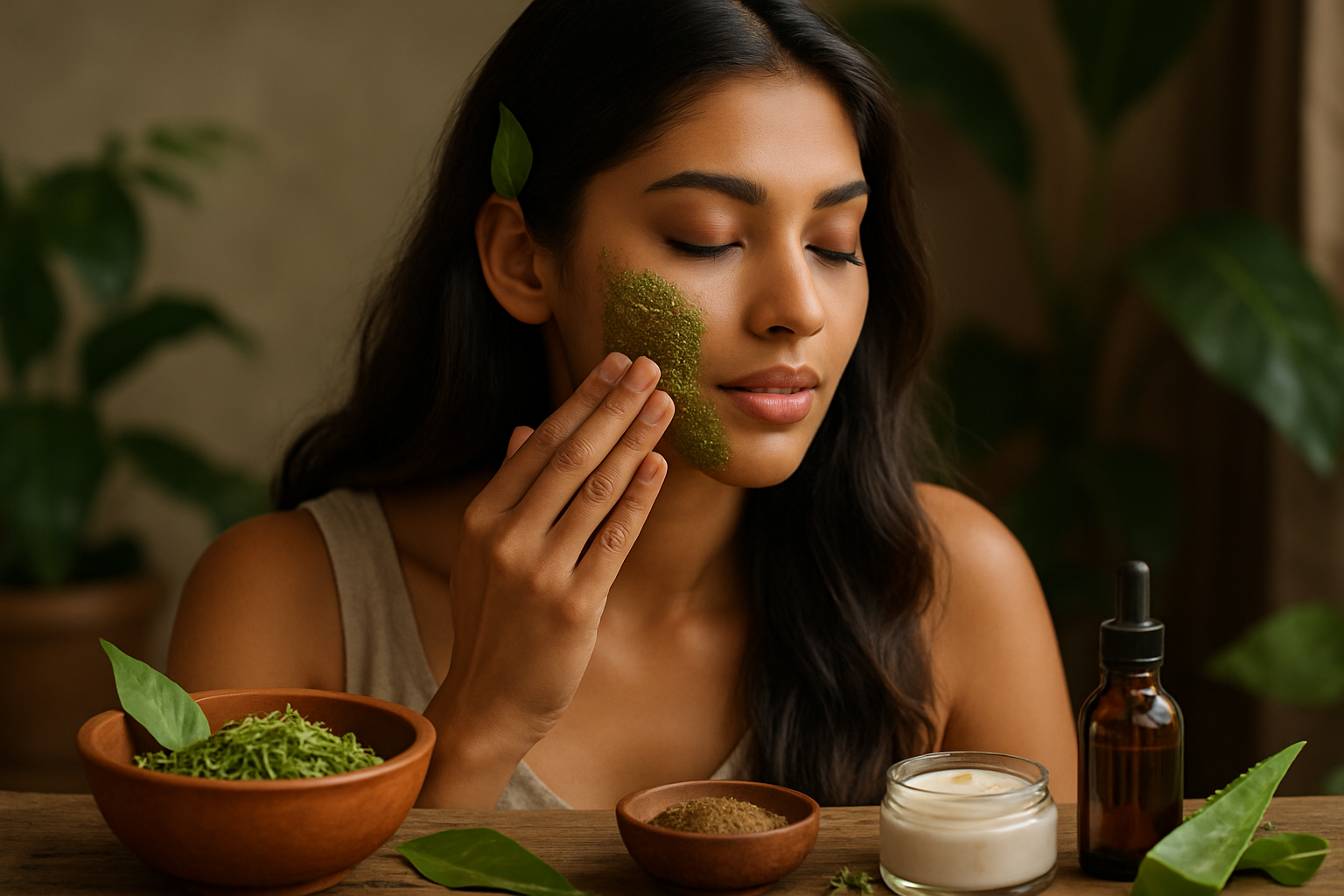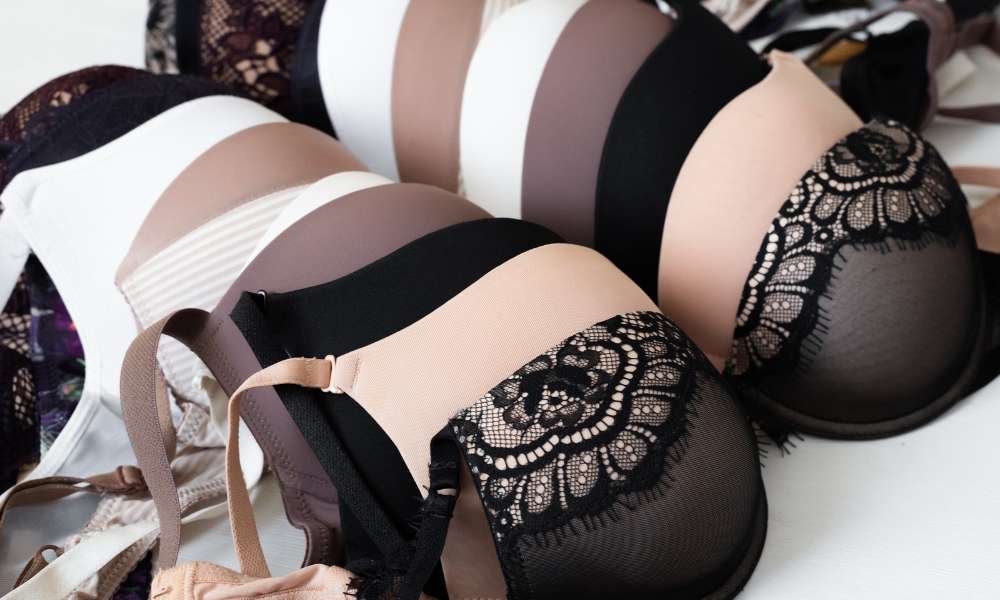Adaptogenic Beauty: The Next Frontier in Skin Wellness
In the ever-evolving world of beauty and skincare, a new trend is emerging that promises to revolutionize how we approach skin health. Adaptogenic beauty, a concept rooted in ancient herbal medicine, is gaining traction as a holistic approach to achieving radiant, resilient skin. This innovative fusion of traditional wisdom and modern science is capturing the attention of beauty enthusiasts and skincare professionals alike. As stress levels soar and environmental aggressors become increasingly prevalent, adaptogenic beauty offers a unique solution that goes beyond surface-level treatments. By harnessing the power of adaptogenic herbs and botanicals, this approach aims to help the skin adapt to stressors, balance internal systems, and promote overall skin wellness from the inside out.

In the context of skincare, the concept of adaptogenic beauty began to take shape in the early 2010s. As consumers became more interested in holistic wellness and natural ingredients, beauty brands started to explore the potential of adaptogens for skin health. The idea was simple yet revolutionary: by incorporating adaptogenic herbs into skincare formulations, it might be possible to help the skin become more resilient to stress and environmental factors that contribute to premature aging and skin issues.
Understanding Adaptogens in Skincare
Adaptogens are non-toxic plants that are believed to help the body resist stressors of all kinds, whether physical, chemical, or biological. In skincare, adaptogens work by targeting the body’s stress response system, potentially mitigating the negative effects of stress on the skin. Some of the most commonly used adaptogens in beauty products include ashwagandha, holy basil, ginseng, rhodiola, and reishi mushroom.
These powerful botanicals are thought to work in several ways:
-
Regulating cortisol levels: Stress can lead to increased cortisol production, which can accelerate skin aging. Adaptogens may help balance cortisol levels, potentially slowing down this process.
-
Boosting antioxidant protection: Many adaptogens have potent antioxidant properties, helping to neutralize free radicals that can damage skin cells.
-
Improving cellular energy: Some adaptogens are believed to enhance mitochondrial function, potentially leading to more energized, healthier-looking skin.
-
Enhancing skin barrier function: Certain adaptogens may help strengthen the skin’s natural barrier, improving its ability to retain moisture and resist environmental stressors.
The Science Behind Adaptogenic Beauty
While the concept of adaptogenic beauty is rooted in traditional practices, modern scientific research is beginning to validate many of these ancient claims. A growing body of evidence suggests that adaptogens can indeed have significant benefits for skin health.
For example, a 2017 study published in the Journal of Clinical and Aesthetic Dermatology found that a skincare regimen containing adaptogenic herbs improved various markers of skin health, including hydration, elasticity, and the appearance of fine lines and wrinkles. Another study, published in the International Journal of Cosmetic Science in 2019, demonstrated that topical application of an adaptogenic herb extract improved skin barrier function and reduced transepidermal water loss.
However, it’s important to note that research in this area is still in its early stages. While initial results are promising, more comprehensive studies are needed to fully understand the mechanisms by which adaptogens benefit the skin and to determine optimal formulations and dosages for skincare applications.
Popular Adaptogens in Beauty Products
As the adaptogenic beauty trend gains momentum, certain herbs are emerging as favorites among formulators and consumers alike:
-
Ashwagandha: Known for its stress-reducing properties, ashwagandha is believed to help combat the effects of environmental stressors on the skin.
-
Holy Basil (Tulsi): This herb is prized for its anti-inflammatory and antioxidant properties, potentially helping to soothe irritated skin and protect against free radical damage.
-
Ginseng: With its energizing and revitalizing effects, ginseng is often used in products aimed at improving skin’s radiance and vitality.
-
Rhodiola: This arctic root is thought to help improve skin’s resilience to stress and environmental factors.
-
Reishi Mushroom: Known as the “mushroom of immortality” in TCM, reishi is valued for its potential to support overall skin health and combat signs of aging.
Incorporating Adaptogens into Your Skincare Routine
For those interested in exploring adaptogenic beauty, there are several ways to incorporate these powerful botanicals into a skincare regimen:
-
Topical products: Many brands now offer serums, moisturizers, and masks infused with adaptogenic herbs. These products can be easily integrated into an existing skincare routine.
-
Ingestible beauty: Some companies are creating adaptogenic supplements specifically formulated for skin health. These can complement topical treatments for a holistic approach.
-
DIY treatments: For the more adventurous, it’s possible to create homemade masks or toners using adaptogenic herbs. However, it’s important to research proper usage and potential interactions before experimenting.
-
Teas and elixirs: Drinking adaptogenic teas or elixirs can be another way to potentially support skin health from the inside out.
When incorporating adaptogens into a skincare routine, it’s crucial to start slowly and pay attention to how the skin responds. As with any new skincare ingredient, there’s always a potential for sensitivity or allergic reactions.
The Future of Adaptogenic Beauty
As consumer interest in holistic wellness and natural skincare continues to grow, the adaptogenic beauty trend is poised for significant expansion. Industry experts predict that we’ll see more sophisticated formulations combining multiple adaptogens for synergistic effects, as well as increased integration of adaptogenic principles into broader skincare and wellness routines.
Moreover, as research in this area advances, we may see more targeted applications of adaptogens for specific skin concerns. For example, certain adaptogens might be found to be particularly effective for acne-prone skin, while others could be optimal for addressing signs of aging.
The trend is also likely to extend beyond skincare into other beauty categories. We’re already seeing adaptogenic ingredients in hair care products, and it’s conceivable that they could make their way into color cosmetics as well.
However, as the adaptogenic beauty market expands, it will be crucial for consumers to remain discerning. Not all products labeled as “adaptogenic” will necessarily contain effective concentrations of these botanicals. Education around proper formulation and usage will be key to ensuring that consumers can truly benefit from this innovative approach to skin wellness.
In conclusion, adaptogenic beauty represents an exciting frontier in the world of skincare. By bridging ancient wisdom with modern science, this approach offers a promising path towards more resilient, radiant skin. As research continues to evolve and more products enter the market, adaptogenic beauty may well become a cornerstone of holistic skin wellness routines for years to come.





